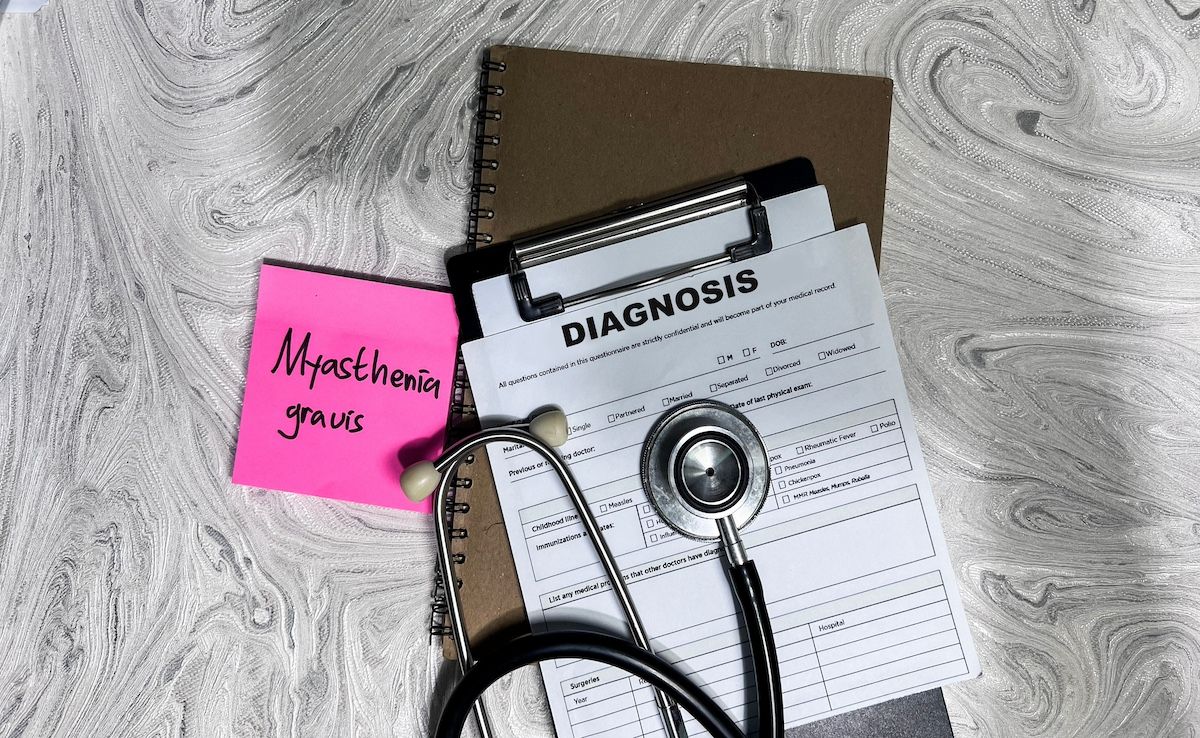- Center on Health Equity & Access
- Clinical
- Health Care Cost
- Health Care Delivery
- Insurance
- Policy
- Technology
- Value-Based Care
Efgartigimod Leads to Sustained Myasthenia Gravis Improvement
Patients with generalized myasthenia gravis experienced durable improvements across measures of efficacy and regardless of the time since they were diagnosed.
Patients with generalized myasthenia gravis (gMG) and acetylcholine-receptor (AChR) autoantibodies saw sustained improvement on efgartigimod (Vygart), according to a new post-hoc analysis.
Writing in the Journal of Neurological Sciences, corresponding author Sarah Dewilde, PhD, of the consultancy Services in Health Economics, and colleagues, said data from the ADAPT clinical trial and its open-label extension affirm the original study’s findings regarding the safety and efficacy of the therapy.1
“Results from our analysis indicate that improvements in strength and function are sustained over time in the gMG population and are consistent regardless of the definition of response, and despite the strict re-treatment criteria applied in the ADAPT studies,” they wrote.
A new post-hoc analysis showed patients with generalized myasthenia gravis and acetylcholine-receptor autoantibodies saw sustained improvement on efgartigimod. | Image credit: syahrir-stock.adobe.com

About 85% of people with gMG are positive for AChR autoantibodies. Conventional therapies for the disease include acetylcholinesterase inhibitor and broad-acting immunotherapies, the authors noted. Yet, in many patients, the clinical benefits of such therapies are limited, and side effects including weight gain, arterial hypertension, infections, and glucose intolerance have been reported.
“There consequently remains a significant unmet need for alternative treatments in gMG that are effective, rapidly acting, and well-tolerated,” they wrote.
Recently, new biologic therapies have begun to change the treatment landscape for people with gMG. Among them is efgartigimod, which targets the Fc receptor. The therapy has been approved by regulators in the US, Japan, and Europe, thanks to the positive results of the original ADAPT trial. In that trial, the results of which were published in 2021, two-thirds (68%) of AChR-antibody-positive patients responded to the therapy in the first treatment cycle.2 In the trial, a response was defined as improving by at least 2 points on the MG-Activities of Daily Living (MG-ADL) assessment and sustaining that improvement for at least 4 weeks. In the placebo group, the response rate was just 30%.
Patients from the original trial were eligible continue in the single-arm, open-label extension follow-up study, dubbed ADAPT+.3 Whereas the original publication of the ADAPT+ results focused on safety and tolerability through 64 weeks of treatment, the authors said this new post-hoc analysis was designed to assess whether efgartigimod led to a sustained, clinically meaningful response.1
For this post-hoc analysis, the investigators defined response to treatment as a 5-point reduction on the Quantitative Myasthenia Gravis (QMG) assessment, or a 3-point improvement in the MG-ADL assessment, compared to baseline.
The investigators found that people in the ADAPT trial who received therapy had a substantially higher percentage of time in response both when using the QMG end point (44% vs 13%; P = .0034) and on the 3-point MG-ADL end point (59% vs 30%; P = .010) during weeks 0 through 20 of the ADAPT trial. For both end points, the investigators said the benefits were sustained throughout the ADAPT+ extension period.
Dewilde and colleagues noted that the higher response rates seen when using the MG-ADL assessment compared to the QMG assessment is consistent with other trials of gMG therapies.
“Instruments based on patient-reported outcomes, such as MG-ADL, are often subject to greater variability and data may consequently be noisy in comparison to the QMG end point, which is an objective measure based on clinical assessment,” they wrote.
However, they added that due to the objective, clinician-assessed nature of the QMG scores, the fact that the therapy significantly outperformed placebo is “particularly noteworthy.”
Dewilde and colleagues also wrote that their findings showed that efgartigimod had a sustained positive effect whether or not patients had had prior immune therapy, and regardless of the time since patients were diagnosed with the disease.
The authors noted that response rates fluctuated over time, and they added that assessments in ADAPT were performed weekly up to week 8 and then biweekly, while ADAPT+ assessments were performed during the 4 weekly infusion visits of a treatment cycle and then only monthly. They said that the assessment schedule rendered the data capture “suboptimal.” Still, they said the overall percentages of patients responding to therapy was notable and impressive.
“Overall, the results of this analysis indicate that efgartigimod is an effective therapeutic option, demonstrating robust and sustained benefit in a broad patient population with gMG and AChR-Ab+,” they concluded.
References
- Dewilde S, Griffiths A, Qi CZ, et al. Post-hoc analyses from the ADAPT clinical study demonstrate aggregate sustained benefit of Efgartigimod in generalized myasthenia gravis. J Neurol Sci. 2024;466:123264. doi:10.1016/j.jns.2024.123264
- Howard JF Jr, Bril V, Vu T, et al. Safety, efficacy, and tolerability of efgartigimod in patients with generalised myasthenia gravis (ADAPT): a multicentre, randomised, placebo-controlled, phase 3 trial. Lancet Neurol. 2021;20(7):526-536. doi:10.1016/S1474-4422(21)00159-9
- Howard JF Jr, Bril V, Vu T, et al. Long-term safety, tolerability, and efficacy of efgartigimod (ADAPT+): interim results from a phase 3 open-label extension study in participants with generalized myasthenia gravis. Front Neurol. 2024;14:1284444. doi:10.3389/fneur.2023.1284444
